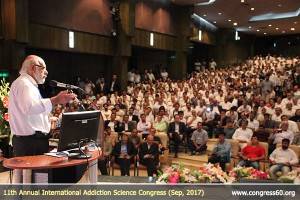Addiction as a Brain Disease (Perspectives from the Islamic Republic of Iran)
3/9/2018
 The understanding of addiction as a brain disease has been a central organizing principle within the research agendas of the National Institute on Drug Abuse and the National Institute on Alcohol Abuse and Alcoholism. Promotion of the brain disease paradigm stirred controversies over its scientific legitimacy and contentions and counter-contentions over its effects on addiction-related stigma, but it exerted unquestioned influence on public and professional conceptions of addiction and approaches to the treatment of addiction in the United States. Interesting variations in the conceptualization of addiction as a brain disease occurred contemporaneously in other countries. The challenge across cultural contexts has been to integrate recent research on the neurobiology of addiction to create more dynamic biopsychosocial models of treatment and recovery support.
The understanding of addiction as a brain disease has been a central organizing principle within the research agendas of the National Institute on Drug Abuse and the National Institute on Alcohol Abuse and Alcoholism. Promotion of the brain disease paradigm stirred controversies over its scientific legitimacy and contentions and counter-contentions over its effects on addiction-related stigma, but it exerted unquestioned influence on public and professional conceptions of addiction and approaches to the treatment of addiction in the United States. Interesting variations in the conceptualization of addiction as a brain disease occurred contemporaneously in other countries. The challenge across cultural contexts has been to integrate recent research on the neurobiology of addiction to create more dynamic biopsychosocial models of treatment and recovery support.
One of the most innovative examples of such integration can be found within the Islamic Republic of Iran's Congress 60 recovery community. Encompassing more than 57,000 active members across 58 branches in Iran, Congress 60 combines a medication-assisted transition into recovery with an extensive menu of psychosocial supports. The rationale for medication support and the unique scheme of such support (the DST method) has been outlined by Congress 60 Founder Hossein Dezhakam in what he christened the X Theory.
I recently had the opportunity to interview Mr. Dezhakam about the X Theory and the DST method and how they are integrated within the larger culture of support within the Congress 60 recovery community. This interview is highly recommended for those exploring such integration in diverse cultural settings, including in the United States, and for those interested in variations in the clinical application of the brain disease model of addiction in non-Western countries.
For decades in the U.S., addiction treatments, with and without medication support, have existed as warring factions fueled by debates producing far more heat than light. Such either/or polarization defies the fact that many people in medication-assisted treatment could greatly benefit from an expanded menu of long-term recovery support services and that recovery outcomes within traditional abstinence-based programs could be elevated by recognition of the potential role medications can play for some patients in recovery initiation and/or maintenance. Congress 60 provides a template of how medication support and psychosocial support can be fully integrated within a vibrant recovery culture.